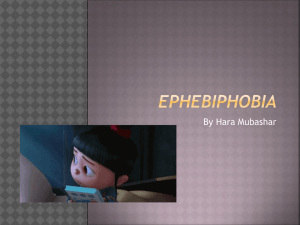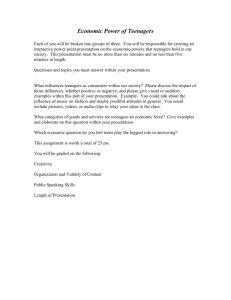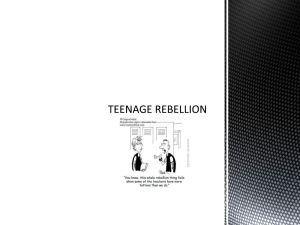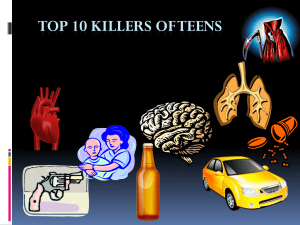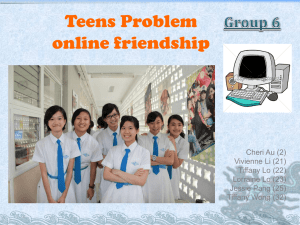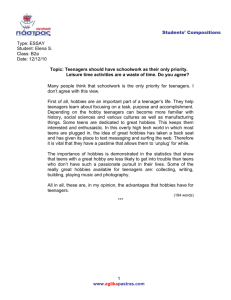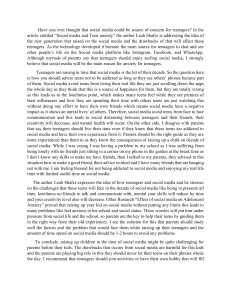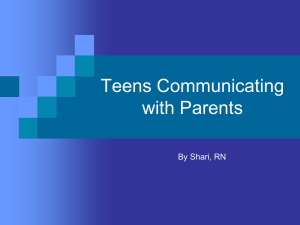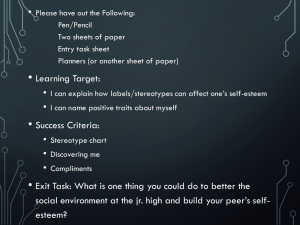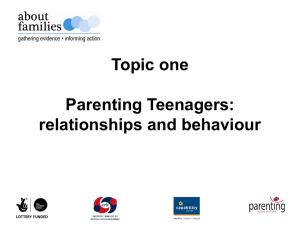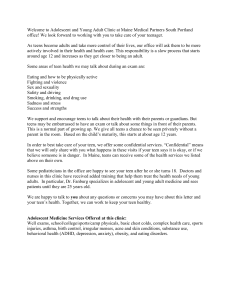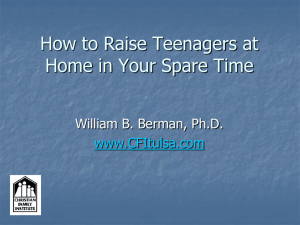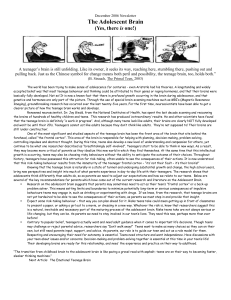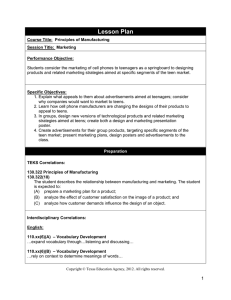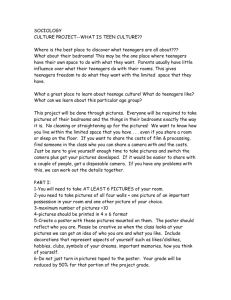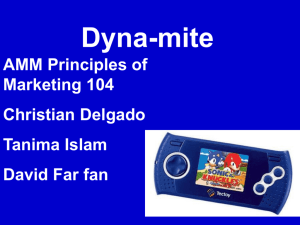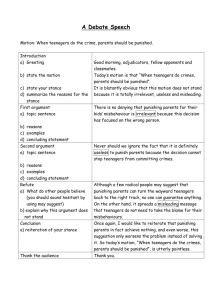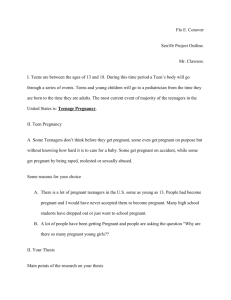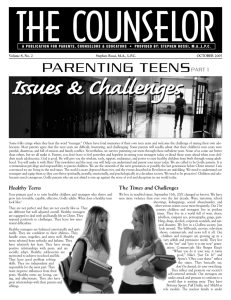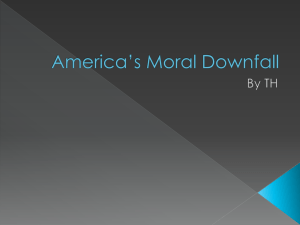Pond Road Middle School - Robbinsville Public School District
advertisement
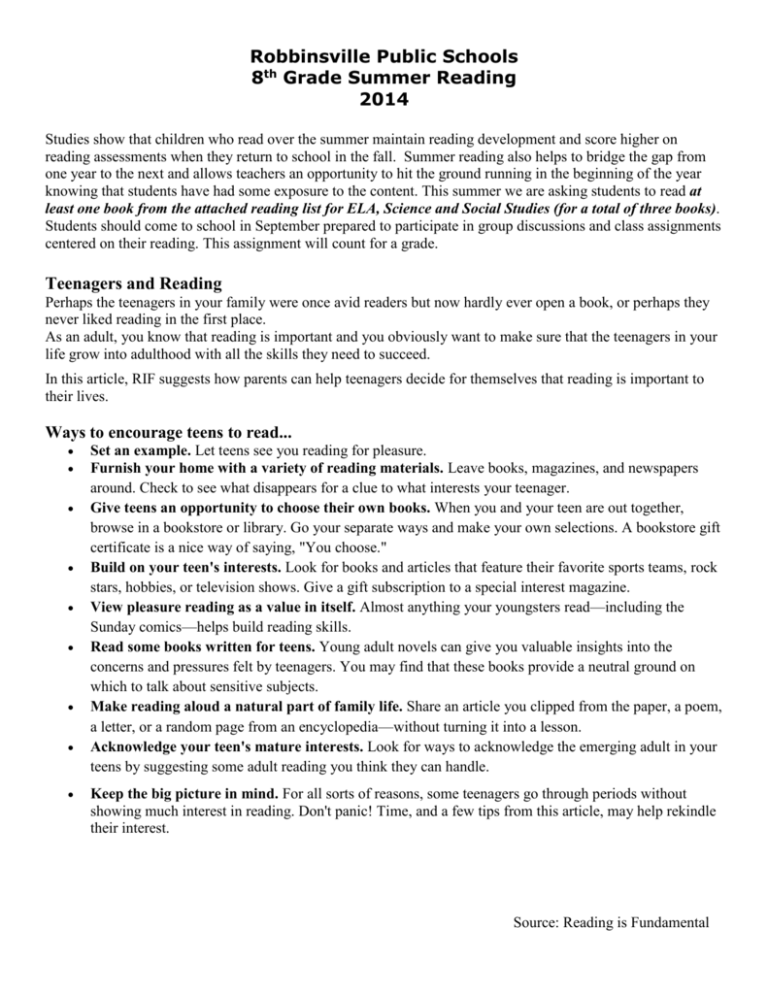
Robbinsville Public Schools 8th Grade Summer Reading 2014 Studies show that children who read over the summer maintain reading development and score higher on reading assessments when they return to school in the fall. Summer reading also helps to bridge the gap from one year to the next and allows teachers an opportunity to hit the ground running in the beginning of the year knowing that students have had some exposure to the content. This summer we are asking students to read at least one book from the attached reading list for ELA, Science and Social Studies (for a total of three books). Students should come to school in September prepared to participate in group discussions and class assignments centered on their reading. This assignment will count for a grade. Teenagers and Reading Perhaps the teenagers in your family were once avid readers but now hardly ever open a book, or perhaps they never liked reading in the first place. As an adult, you know that reading is important and you obviously want to make sure that the teenagers in your life grow into adulthood with all the skills they need to succeed. In this article, RIF suggests how parents can help teenagers decide for themselves that reading is important to their lives. Ways to encourage teens to read... Set an example. Let teens see you reading for pleasure. Furnish your home with a variety of reading materials. Leave books, magazines, and newspapers around. Check to see what disappears for a clue to what interests your teenager. Give teens an opportunity to choose their own books. When you and your teen are out together, browse in a bookstore or library. Go your separate ways and make your own selections. A bookstore gift certificate is a nice way of saying, "You choose." Build on your teen's interests. Look for books and articles that feature their favorite sports teams, rock stars, hobbies, or television shows. Give a gift subscription to a special interest magazine. View pleasure reading as a value in itself. Almost anything your youngsters read—including the Sunday comics—helps build reading skills. Read some books written for teens. Young adult novels can give you valuable insights into the concerns and pressures felt by teenagers. You may find that these books provide a neutral ground on which to talk about sensitive subjects. Make reading aloud a natural part of family life. Share an article you clipped from the paper, a poem, a letter, or a random page from an encyclopedia—without turning it into a lesson. Acknowledge your teen's mature interests. Look for ways to acknowledge the emerging adult in your teens by suggesting some adult reading you think they can handle. Keep the big picture in mind. For all sorts of reasons, some teenagers go through periods without showing much interest in reading. Don't panic! Time, and a few tips from this article, may help rekindle their interest. Source: Reading is Fundamental 8th Grade Required Reading List This summer we are asking students to read at least one book for ELA, Science, and Social Studies (for a total of three books). Students should come to school in September prepared to participate in group discussions and class assignments centered on their reading. This assignment will count for a grade. English Language Arts Science 1. 2. 3. 4. 5. 1. Between Shades of Gray by Ruta Sepetys Skinny by Donna Cooner Monster by Walter Dean Myers Feed by M. T. Anderson Mad Dog 100: The Greatest Sports Arguments of All Time by Christopher Russo 6. Chinese Cinderella by Adeline Yen Mah 2. 3. 4. 5. A Short History of Nearly Everything (Adult) by Bill Bryson (At a minimum, students need to read Part V: Life Itself and Part VI: The Road to Us) Chew on This: Everything You Don’t Want to know About Fast Food by Eric Schlosser and Charles Wilson The Demon in the Freezer: A True Story by Richard Preston Fever 1793 by Laurie Halse Anderson Moonbird: A Year on the Wind with the Great Survivor B95 by Phillip Hoose Social Studies Math (optional) 1. Lorenzo's Secret Mission by Guzman, Lila 2. Five 4ths of July by Pat Hughes 3. Soldier's Secret: The Story of Deborah Sampson by Sheila Solomon Klass 4. 1776 by David McCullogh 5. Countdown to Independence: A Revolution of Ideas in England and Her American Colonies: 1760-1776 by Natalie Bober 6. The Real Revolution: The Global Story of American Independence by Marc Aronson 7. The American Revolutionaries: A History in Their Own Words 1750-1800 by Milton Meltzer 8. Forge by Laurie Halse Anderson 1. My Best Mathematical and Logic Puzzles by Martin Gardner 2. The Number Devil: A Mathematical Adventure by Hans Magnus Enzenberger. 3. Hot X: Algebra Exposed by Danika McKellar 4. Do the Math: Secrets, Lies, and Algebra by Wendy Lichtman 5. Crimes and Mathdemeanors by Leith Hathout “…children who do not read in the summer lose two to three months of reading development while kids who do read tend to gain a month of reading proficiency. This creates a three to four month gap every year. Every two or three years the kids who don’t read in the summer fall a year behind the kids who do.” University of Tennessee, Knoxville, faculty member Richard Allington, who conducted a three-year study showing a significantly higher level of reading achievement in students who read over the summer.
